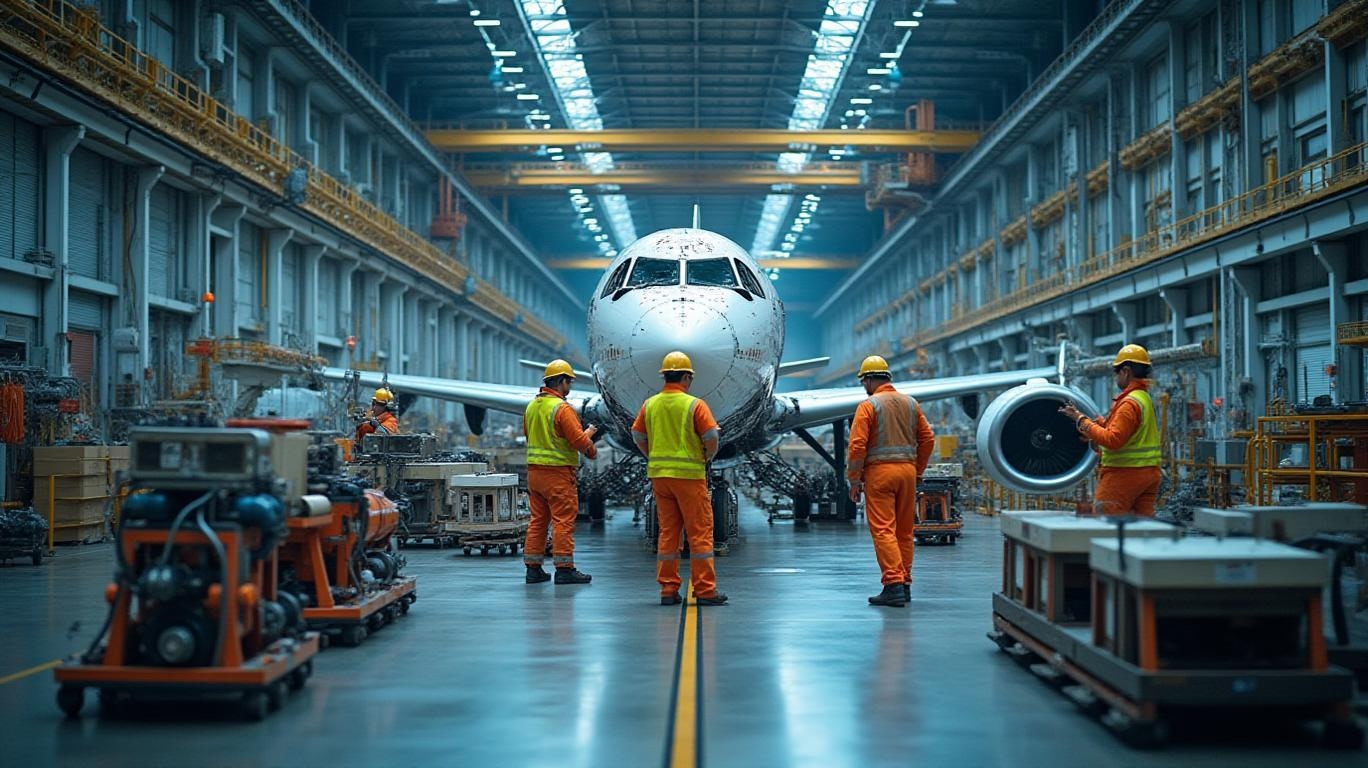エアロジニー — あなたのインテリジェントな副操縦士。
現在のトレンド
Categories
Airbus Announces Aircraft Delivery Delays Affecting Airlines Through 2028

Airbus Announces Extended Aircraft Delivery Delays Through 2028 Amid Supply Chain Challenges
Persistent Disruptions Impacting Global Airlines and Lessors
Airbus has informed airlines and leasing companies that delays in aircraft deliveries will extend through 2027 and 2028, attributing the setbacks to ongoing supply chain disruptions. This development, confirmed by multiple industry sources, affects major international hubs including Los Angeles International Airport (LAX) and London Heathrow (LHR). The delays primarily stem from shortages of engines and critical structural components, which continue to hamper production despite some minor improvements.
Since the onset of the COVID-19 pandemic, Airbus has struggled with significant production constraints caused by global supply chain interruptions. During a recent briefing at its Toulouse headquarters, the manufacturer acknowledged the likelihood of multi-year postponements. Executives from several global carriers have confirmed that aircraft initially scheduled for delivery in 2027 and 2028 are now subject to deferral, underscoring the severity of the situation.
Leasing companies such as Air Lease Corporation have publicly disclosed delays affecting the highly demanded A320neo and A321neo families. Even lessors, who typically benefit from more flexible delivery arrangements than airlines, are finding it increasingly difficult to manage fleet planning amid the scarcity of available aircraft. Airlines including Royal Jordanian and Wizz Air are also experiencing delayed deliveries, highlighting the widespread impact across the aviation sector.
Production Ambitions Confronted by Supply Chain Realities
Industry experts note that it is unusual for a manufacturer to project delivery disruptions three years in advance. Airbus’s early warnings reflect both its record-high production targets and mounting pressure from airlines seeking clarity on future fleet availability. The company remains committed to increasing A320 family production to 75 jets per month by 2027, as stated by CEO Guillaume Faury. However, current output hovers around 60 jets per month, prompting skepticism among analysts and customers regarding the feasibility of meeting these ambitious goals amid ongoing supplier uncertainties.
The delays have drawn criticism from some customers. Saudi Arabia’s low-cost carrier flyadeal described Airbus’s delivery setbacks as “inexcusable,” cautioning that disruptions could also affect newly ordered wide-body A330neos. Such frustrations may influence future purchasing decisions, with airlines increasingly scrutinizing Airbus’s production capabilities. Meanwhile, competitors like Boeing continue to secure significant orders; International Airlines Group (IAG) recently placed substantial widebody aircraft orders with both Airbus and Boeing, signaling a potential diversification of suppliers in response to persistent delays.
Delivery Performance and Outlook
Airbus has delivered only 32 aircraft so far this month, with expectations to exceed 40 by month-end—figures that remain well below the 53 deliveries recorded in May of the previous year. From January to April, deliveries declined by 5% year-over-year. Despite these challenges, Airbus maintains its annual target of 820 aircraft deliveries for 2025, representing a 7% increase over 2024. Company officials, however, acknowledge that engine supply issues may deteriorate before improving.
Engine manufacturer CFM, a joint venture between GE Aerospace and Safran, has yet to finalize a supply schedule aligned with Airbus’s production ramp-up plans, complicating the outlook further. Safran has recently indicated progress, suggesting that CFM could regain momentum later in 2025.
As airlines and lessors contend with the operational and financial repercussions of these delays, the commercial aviation industry faces heightened uncertainty. The situation has intensified scrutiny of Airbus’s capacity to fulfill its ambitious production targets amid persistent supply chain challenges.

Emirates Unveils Cabin Design for New Boeing 777X

Eighteen Years On, the Airbus A380 Remains Central to a $34 Billion Airline

How a boom in luxury airline seats is slowing down jet deliveries

Navitaire Outage Attributed to Planned Maintenance

DigiYatra Debuts Outside Aviation at India AI Impact Summit

Vietnam Orders Strengthen Boeing’s Commercial Outlook

Airbus Signals Uncertainty Over Future A400M Orders

JobsOhio Awards $2 Million Grant to Hartzell Propeller for Innovation Center

Collins Aerospace Tests Sidekick Autonomy Software on YFQ-42A for U.S. Air Force CCA Program

How the Airbus A350-1000 Compares to the Boeing 777
